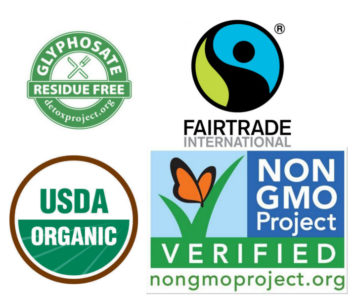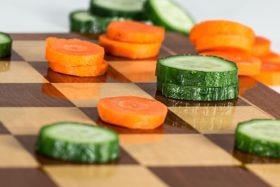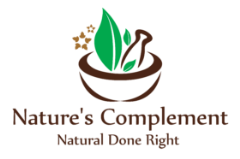
As consumers become more aware of what goes into their food and personal care products, they are taking action with their wallets and purses by choosing to purchase products that meet higher standards for their health and beauty requirements. For example, choosing to buy organic, non-GMO, gluten free, cruelty free, fair trade, and so on, according to their personal choices of what they need or want to support. However, because the labeling rules are limited by the FDA, many companies will make vague statements that mean nothing, such as “fat free” and “organically grown”. This has resulted in the consumer resorting to either reading label ingredients carefully followed by extensive research of the manufacturer, or simply looking for their seal of choice, such as the “USDA organic” or “Non-GMO” certified seal.
There are now so many seals that one can look for, I don’t know that a single manufacturer would be able to fit them all on one label. Of course, some have more weight than others, depending on the consumer.
While the certified seals have made shopping not only easier but faster for consumers, unfortunately, there are consequences to these as well. There are two problems I will discuss, one from a consumer point of view, and one from a manufacturer point of view.
From the consumer standpoint
I’ve been referred to as a health freak, and proudly hold my head high when such as remark is thrown at me. Yes, I am a health freak. Yes, I am careful about what I put on and in my body. With such a high cancer rate in our country, I am the first to read ingredients, have “no spray” signs out front along my county road, and diligently keep up with the latest research on what’s in our products, such as EWG’s recent studies showing that glyphosate (a carcinogen) is found in your organic oats. So if not playing Russian roulette with your food makes you a health freak, then I am proud to stand up and answer to the name.

With that said, the Non-GMO and USDA organic seals are the first things I look for when I look for products. Especially if one I used to consume was discontinued (happens a lot with real healthy food), or if I’m looking for something that I don’t regularly buy. The second thing I look at are the ingredients. Then thirdly I consider the brand – do I trust them?
This process has worked well for me in avoiding ingredients I don’t want in or on my body, however… here is the problem with these seals. It’s too easy to get lazy, and I caught myself putting a product in my shopping cart that was made by a brand I trust, and had the two seals I look for. Fortunately, I caught myself while standing in line and picked up the product to read the ingredients. So glad I did, as it included an ingredient that is considered safe, and often added to organic products, but I myself choose not to eat based on scientific research. But there it was, sodium benzoate, in combination with citric acid (a bad combination that can result in a reaction producing benzene – a carcinogen) almost paid for and in my grocery bag on the way home.
Lesson learned, look for the seal, but read the ingredients too. But does that mean that you should only buy products that have the seals?

From the manufacturer standpoint
As a business owner of a manufacturing company that I built from the ground up (with Rob’s help of course), I know very well what it costs to start up a company from scratch. For a long time I supported myself with a full time job and built up Nature’s Complement on evenings and weekends, and especially on holidays, often wrapping soap until two in the morning.
I also know the cost associated with every aspect of such a business. When I first started I wore every “hat” from formulator to researcher to accountant to purchaser. And I’m glad I had to wear all those hats because this guaranteed I knew what the company’s financial numbers were. I knew (and still do know) what the raw ingredients that go into the products cost. The hours it takes to make them, and the end profit. And with trying to provide healthy organic products to consumers at an affordable price, I had to make some cuts somewhere to keep that bar of soap from costing $27.
From a manufacturer’s standpoint, everything that goes into a product has to be accounted for in the price of that product. That includes cost of rent, electricity, equipment, marketing/advertising, products damaged in shipping, manufacturing problems, insurance, website, the list goes on and on, and doesn’t necessarily include our time. You certainly won’t see Nature’s Complement products featured on the Super Bowl Sunday commercials.

So what about the USDA organic, or the Non-GMO seal? Well, those cost money too – a lot of it. The more ingredients that need certifying, the more the overall cost. And it’s not a one time payment either. It’s a continued expense that I’ve had to weigh on my small budget scale and ask myself how important is the seal. In the end I decided that while SPF testing for a sunscreen was a requirement and I dished out the funds for that, an organic or Non-GMO seal is not, because there are others way to inform the consumer. We don’t invest in the seal even though most of the ingredients we use are organic, simply because the volumes we sell are not big enough to justify raising the cost of your products to pay the high price for the seals. (Please note that we do not grow any of our ingredients, we purchase all the raw ingredients, and only purchase certified ingredients).
Instead, we list all our ingredients as clearly as possible. If they are ingredients at risk for GMO, we only purchase certified non-GMO/organic ingredients, and list them as such on the ingredients list on the label. This way our customers know if we use at risk ingredients and if they are certified non-GMO or organic. While they can’t quickly look at the front of the product for the special seal, they can still see very easily what’s in the product, and if it’s non-GMO or organic. This ensures the cost of the soap doesn’t sky rocket to ridiculous levels to pay for seals. Everybody wins, sort of.

We are not the only manufacturer that does this. I have found other small businesses who produce quality products that do the same thing if they cannot afford the cost of official certification. They simply list the ingredients as “organic ingredient” if it is organic, or include “Non-GMO” if it is non-GMO as per the certification of the raw ingredients.
The problem with this method however, is that organic/non-GMO claims can’t be made without the certification, so reading ingredients is crucial – which is not ideal for the consumer in a rush. The second problem is that small brands like mine aren’t easily found if a seal is all that someone is looking for.

In conclusion
Should you only trust products that have the Organic or Non-GMO Seal? No, read the ingredients to find out if organic/non-GMO ingredients were used in the production of the product. Just because the product doesn’t have the seal, doesn’t mean that it’s not organic or not Non-GMO. Support your local small businesses by purchasing their products – but only after they meet your high standards and requirements.
Should you always trust products that have the organic and/or Non-GMO seal? Absolutely not. Many products that are given the organic seal contain up to 5% of non-organic ingredients. Some non-organic ingredients do not have to be listed, such as those used in food fortification. And some ingredients that are allowed to be labeled as organic and/or non-GMO are not actually healthy. So you still have to do your own diligence to determine if you want certain ingredients in your products. Remember, organic or non-GMO labels tell you how a product was grown and/or produced. But they do not necessarily equal safe and healthy, they only increase the odds. So while the certification seals can be helpful in making healthier choices, they are not the final word. There is no such thing as a “guaranteed healthy for your body” seal.

Bottom line
Read the ingredients. Manufacturers of both food and personal care products are required by law to list (most) ingredients correctly, so that is your best resource for the truth of what’s in a product. Just be aware that some ingredients listed on product labels such as “perfume” or “artificial flavoring” can be “weasel words” used to hide other unsafe ingredients.
For Health,
Tober
Nature's Complement is a participant in the Amazon Services LLC Associates Program, an affiliate advertising program. If you purchase products on Amazon through any of our affiliate links, we get a small percentage of the transaction, at no extra cost to you. We spend a lot of time writing the articles on this site, and all this information is provided free of charge. When you use our affiliate links, you support the writing you enjoy without necessarily buying our products. (However we would appreciate if you would do that too!) Thank you for helping to support our work, however you choose to do so.
These statements have not been evaluated by the Food and Drug Administration. This information and/or products are not intended to diagnose, treat, cure or prevent any disease.


